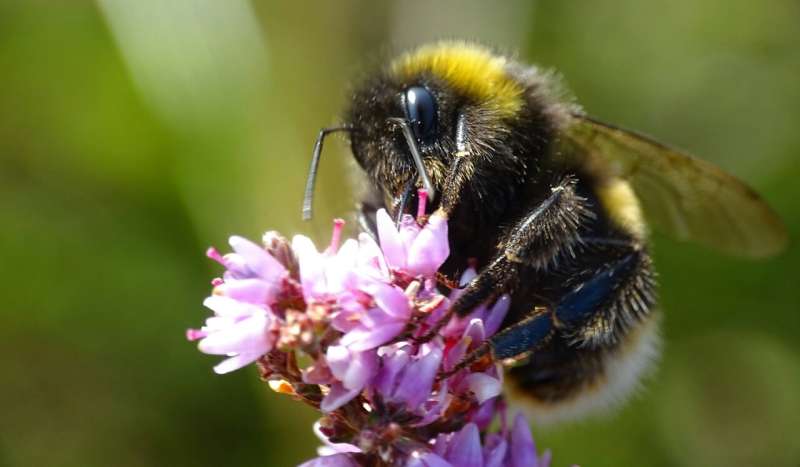Groundbreaking research from Newcastle University reveals that stressed bumblebees exhibit emotion-like states, making more pessimistic choices that could impact their ability to pollinate flowers. This intriguing study suggests that even insects, like bumblebees, may experience states akin to human emotions when faced with adversity.

Stressed Bees Experience Pessimistic Outlook
Researchers at Newcastle University have made a fascinating discovery about the cognitive and behavioral responses of bumblebees under stress. Utilizing a clever experimental design, the scientists trained bees to associate different colors with either a rewarding or less rewarding outcome.
When the bees were subsequently exposed to a simulated predatory attack, the researchers found that these stressed bees were much less likely to interpret ambiguous colors as indicating a high-reward scenario. Instead, they tended to visit the low-reward locations more often than the control group of bees who had not experienced the stressful event. This shift in expectation, from optimistic to pessimistic, is remarkably similar to the response seen in humans when faced with adversity.
Bees Demonstrate Emotion-Like States
The researchers believe that this behavioral shift in stressed bees is indicative of an emotion-like state, akin to the feelings of pessimism and negative outlook seen in humans. Dr. Vivek Nityananda, from Newcastle University, explains, “Emotions are complex states and in humans involve a subjective understanding of what you are feeling. We might never know if bees feel something similar. However, what this research can say is that bees have similar responses when they are stressed and make pessimistic choices.”
This finding is particularly significant, as it suggests that even insects, with their relatively simple nervous systems, may possess the capacity for emotion-like experiences. The researchers emphasize that further investigation is needed to better understand the neural mechanisms and precise implications of these stress-induced states in bees.
Implications for Pollination and Conservation Efforts
The implications of this research extend beyond the fascinating insights into insect cognition and behavior. Dr. Olga Procenko, who led the study, highlights the potential impact on the critical role of bees as pollinators: “Our research suggests that like other animals including humans, bees may experience emotion-like states when stressed, as demonstrated by a clear shift towards pessimism. When faced with ambiguity, stressed bees, much like someone seeing the glass as ‘half empty,’ are more likely to expect negative outcomes.”
This shift in bees’ expectation and approach to flowers could have significant consequences for the pollination of plants and the overall health of ecosystems. Researchers emphasize the importance of further studies to understand the full implications of stress on bees’ cognitive processes and their ability to effectively pollinate. These insights could inform conservation efforts and help ensure the continued health and resilience of bee populations in the face of environmental challenges.
